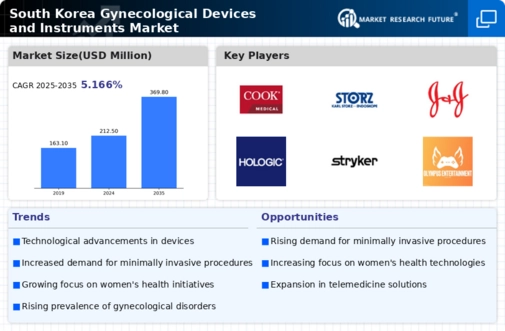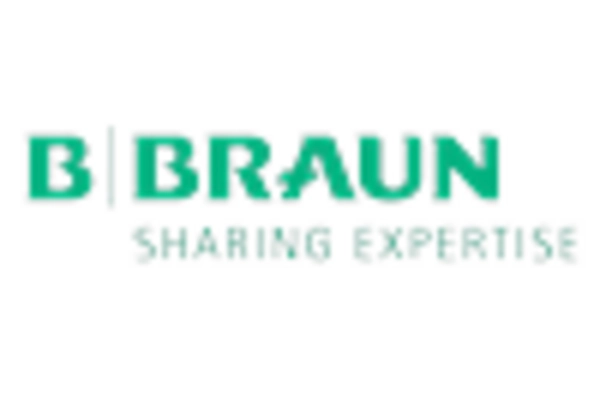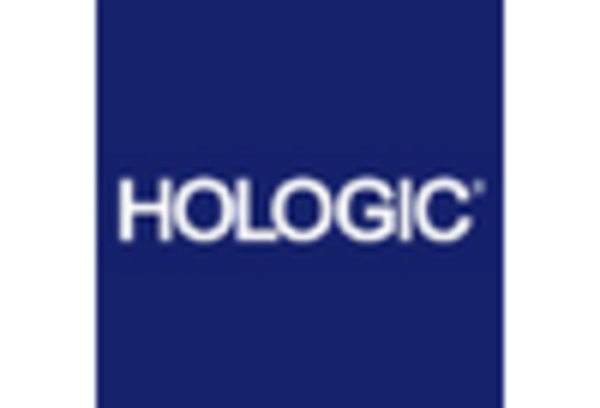Supportive Government Policies
Supportive government policies aimed at improving women's health are playing a crucial role in the growth of the gynecological devices-instruments market. The South Korean government has implemented various initiatives to enhance access to healthcare services for women, including subsidies for gynecological screenings and treatments. These policies have led to an increase in the utilization of gynecological instruments, as more women are encouraged to seek necessary medical care. Recent reports indicate that government funding for women's health programs has increased by 20% over the last year, further stimulating market demand. As these initiatives continue to evolve, they are likely to create a more favorable environment for the gynecological devices-instruments market, fostering innovation and accessibility.
Technological Integration in Healthcare
The integration of advanced technologies in healthcare is transforming the gynecological devices-instruments market. Innovations such as minimally invasive surgical techniques, robotic-assisted surgeries, and telemedicine are enhancing the efficiency and effectiveness of gynecological care. In South Korea, the adoption of these technologies has been on the rise, with a reported increase of 15% in the use of robotic surgical systems in gynecological procedures. This technological evolution not only improves patient outcomes but also streamlines healthcare processes, making them more efficient. As healthcare facilities continue to embrace these advancements, the gynecological devices-instruments market is expected to experience substantial growth, driven by the demand for state-of-the-art solutions that enhance surgical precision and patient safety.
Growing Awareness of Preventive Healthcare
There is a notable increase in awareness regarding preventive healthcare among women in South Korea, which is positively influencing the gynecological devices-instruments market. Women are increasingly seeking regular check-ups and screenings to detect potential health issues early. This shift in mindset is reflected in the rising utilization of gynecological instruments such as Pap smear kits and ultrasound devices. Market data indicates that the demand for preventive gynecological services has surged by approximately 25% over the past few years. As women prioritize their health, healthcare providers are responding by investing in advanced gynecological devices, thereby propelling market growth. This trend underscores the importance of education and awareness campaigns in promoting women's health and the corresponding demand for gynecological instruments.
Rising Incidence of Gynecological Disorders
The increasing prevalence of gynecological disorders in South Korea is a significant driver for the gynecological devices-instruments market. Conditions such as endometriosis, polycystic ovary syndrome (PCOS), and uterine fibroids are becoming more common, leading to a heightened demand for diagnostic and therapeutic devices. According to recent health statistics, approximately 30% of women in South Korea experience some form of gynecological issue during their lifetime. This trend necessitates the development and adoption of advanced gynecological instruments, which are essential for effective diagnosis and treatment. As healthcare providers seek to improve patient outcomes, the gynecological devices-instruments market is likely to expand, driven by the need for innovative solutions that address these prevalent health concerns.
Aging Population and Increased Healthcare Needs
The aging population in South Korea is contributing to the rising demand for gynecological devices and instruments. As women age, they are more susceptible to various gynecological conditions, necessitating regular monitoring and treatment. The demographic shift indicates that by 2030, approximately 20% of the population will be over 65 years old, leading to an increased need for specialized gynecological care. This trend is expected to drive the growth of the gynecological devices-instruments market, as healthcare providers seek to accommodate the unique needs of older women. Furthermore, the demand for devices that cater to age-related conditions, such as menopause management tools, is likely to rise, highlighting the importance of adapting to the changing healthcare landscape.
















